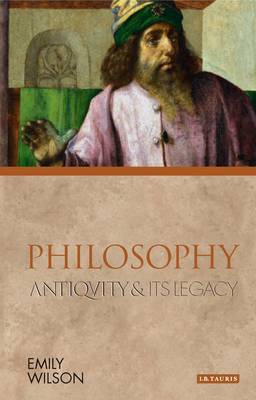Ancients and Moderns
1 total work
Emily Wilson is Associate Professor of Classical Studies at the University of Pennsylvania. She is the author of "Mocked with Death: Tragic Overliving from Sophocles to Milton" (2004), "The Death of Socrates: Hero, Villain, Chatterbox, Saint" (2007) and "Six Tragedies of Seneca" (2010). Philosophy is arguably the most famous legacy bequeathed by the classical world to the modern age. But what is 'philosophy'? Is it an intellectual discipline, as it tends to be categorised in today's academic departments of philosophy? Or is it a venerable and ultimately spiritual or psychological process of attaining the Good, however that is understood? For the ancient Greeks and Romans, 'philosophy' meant something very different and much broader than the present-day university discipline. In her lively and engaging new book, Emily Wilson shows that this amounts to more than just the philological change in a word. She points to fundamental differences between ancient and modern ideas about reason, wisdom, theology, science, psychology, ethics and what it is to be fully human.
Exploring diverse thinkers like Socrates, Xenophanes, Thales, Plato, Aristotle, Protagoras, Heraclitus, Hobbes, Descartes, Kuhn and Popper, the author discusses broad themes and schools - including the pre-Socratics and Sophists - in the history of ideas. In a fascinating discussion Wilson concludes that antiquity, for all its impact on later ages, promoted a bolder kind of philosophical scepticism than anything common in modernity.
Exploring diverse thinkers like Socrates, Xenophanes, Thales, Plato, Aristotle, Protagoras, Heraclitus, Hobbes, Descartes, Kuhn and Popper, the author discusses broad themes and schools - including the pre-Socratics and Sophists - in the history of ideas. In a fascinating discussion Wilson concludes that antiquity, for all its impact on later ages, promoted a bolder kind of philosophical scepticism than anything common in modernity.
